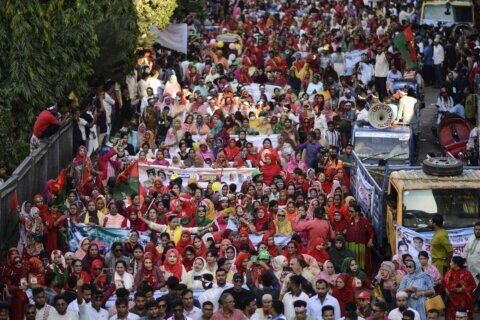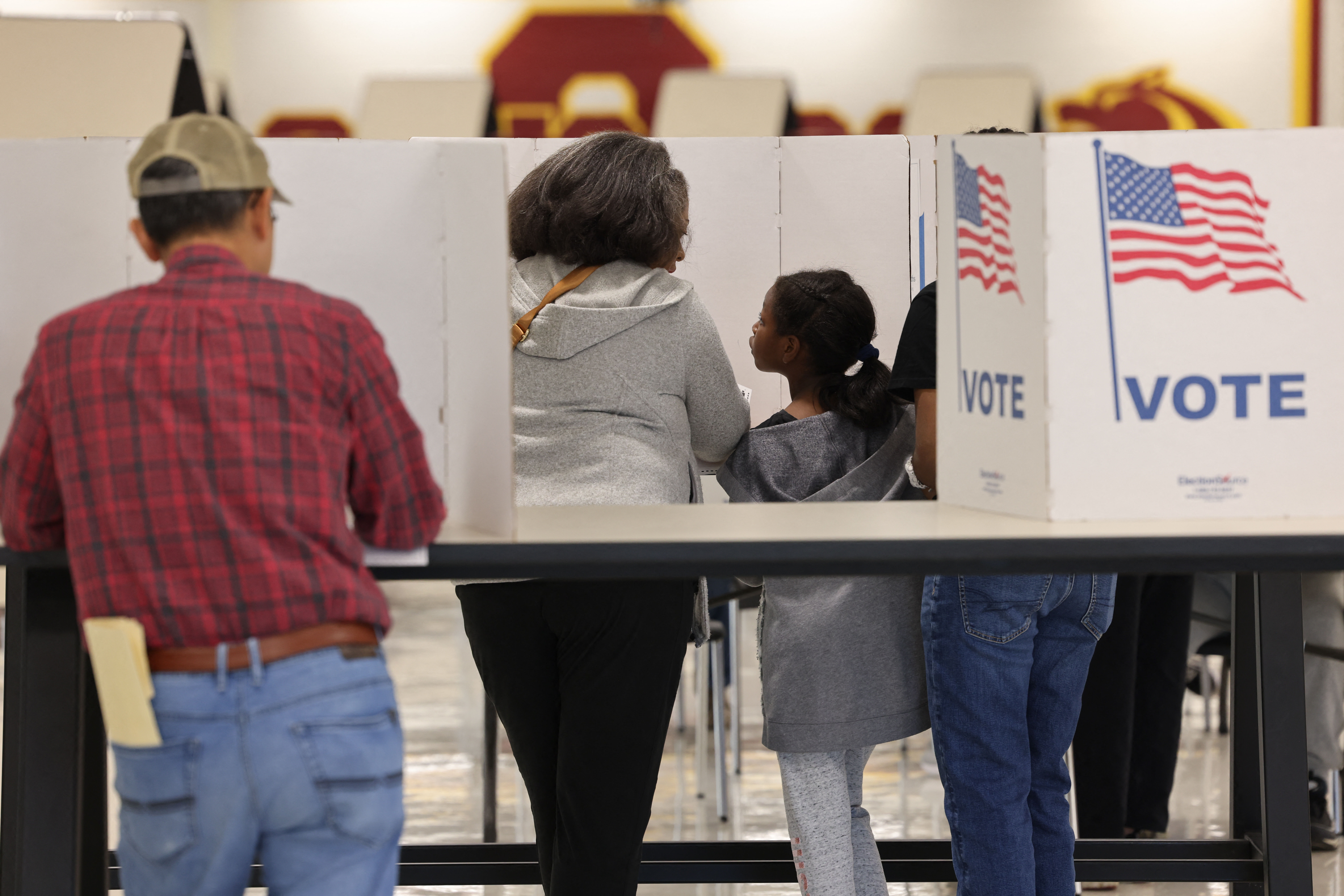SRINAGAR, India (AP) — For decades, boycotting elections in Indian-controlled Kashmir was a sign of protest against Indian rule.
That may change on Wednesday, when many residents of the Muslim-majority region say they’re willing to use their vote in a local election to deny Prime Minister Narendra Modi’s party the power to form an administration in the disputed region.
The vote is the first in a decade, and the first since Modi’s Hindu nationalist government in 2019 scrapped the region’s special status and downgraded the former state to a federally governed territory. The move — which largely resonated in India and among Modi supporters — was mostly opposed in Kashmir as an assault on its identity and autonomy.
“Boycotts will not work in this election,” said Abdul Rashid, a resident in southern Kashmir’s Shangus village. “There is a desperate need to end the onslaught of changes coming from there (India).”
India wants to keep Kashmir under direct rule
The election will allow Kashmir to have its own truncated government and a local assembly, instead of remaining under New Delhi’s direct rule. The region’s last assembly election was held in 2014, after which Modi’s Bharatiya Janata Party for the first time ruled in a coalition with the local Peoples Democratic Party.
But the government collapsed in 2018, after BJP withdrew from the coalition. Polls in the past have been marked with violence, boycotts and vote-rigging, even though India called them a victory over separatism.
This time, New Delhi says the polls are ushering in democracy after more than three decades of strife. However, many locals see the vote as an opportunity not only to elect their own representatives but also to register their protest against the 2019 changes.
Polling will be held in three phases. The second and third phases are scheduled for Sept. 25 and Oct. 1. Votes will be counted on Oct. 8, with results expected that day.
Kashmir is divided between nuclear-armed rivals India and Pakistan. Since 1947, the neighbors have fought two wars over its control, after British rule of the subcontinent ended with the creation of the two countries. Both claim the Himalayan territory in its entirety.
In 2019, the Indian-controlled part of the region was divided into two territories, Ladakh and Jammu-Kashmir, ruled directly by New Delhi. The region has been on edge since it lost its flag, criminal code, constitution and inherited protections on land and jobs.
Limited power for local assembly
Multiple pro-India Kashmiri parties, many of whose leaders were among thousands jailed in 2019, are contesting the election, promising to reverse those changes. Some lower-rung separatist leaders, who in the past dismissed polls as illegitimate exercises under military occupation, are also running for office as independent candidates.
India’s main opposition Congress party, which favors restoration of the region’s statehood, has formed an alliance with the National Conference, the region’s largest party. Modi’s BJP has a strong political base in Hindu-dominated areas of Jammu that largely favor the 2019 changes but is weak in the Kashmir Valley, the heartland of anti-India rebellion.
“Our main concern is governance through local representatives. It will be good for us if the BJP forms the government here as it’s already in power at the center,” said Chuni Lal, a shopkeeper in Jammu city.
The vote will see a limited transition of power from New Delhi to the local assembly, with a chief minister at the top heading a council of ministers. But Kashmir will continue to be a “Union Territory” — a region directly controlled by the federal government — with India’s Parliament remaining its main legislator.
The elected government will have partial control over areas like education, culture and taxation but not over the police. Kashmir’s statehood must be restored for the new government to have powers similar to other states in India. However, it will not have the special powers it enjoyed before the 2019 changes.
Last year, India’s Supreme Court endorsed the government’s 2019 changes but ordered New Delhi to conduct local polls by the end of September and restore Kashmir’s statehood. Modi’s government has promised to restore statehood after the polls but has not specified a timeline.
Concerns about rigged vote
Elections in Indian-held Kashmir are a sensitive issue. Many believe they have been rigged multiple times in favor of local politicians who subsequently became India’s regional enforcers, used to incrementally dilute laws that offered Kashmir a special status and legitimize New Delhi’s militaristic policies.
In the mid-1980s, the region’s dissident political groups emerged as a formidable force against Kashmir’s pro-India political elite but lost the 1987 election widely believed to have been rigged. A public backlash followed, with some young activists taking up arms and demanding a united Kashmir, either under Pakistani rule or independent of both.
India insists the insurgency is Pakistan-sponsored terrorism, a charge Islamabad denies. Tens of thousands of people have been killed in the fighting, which most Kashmiri Muslims consider a legitimate freedom struggle.
Noor Ahmed Baba, a political scientist, said the outcome of the polls “is not going to change the dynamics of the Kashmir dispute” since it will end with a largely powerless legislature, but will be crucial for optics.
“If local parties win, it is going to put some pressure on the central government and perhaps delegitimize from a democratic perspective what has been done to Kashmir. But a BJP win can allow the party to consolidate and validate 2019 changes in the local legislature,” Baba said.
India’s ruling BJP is not officially aligned with any local party, but many politicians believe it is tacitly supporting some parties and independent candidates who privately agree with it.
The National Conference party says Modi’s BJP is trying to manipulate the election through independents. “Their (BJP’s) concerted effort is to divide the vote in Kashmir,” said Tanvir Sadiq, a candidate from the National Conference.
The BJP’s national secretary, meanwhile, says his party’s former ally, the Peoples Democratic Party, and the National Conference are being supported by former militants. Ram Madhav said at a recent rally that they want to return the region to its “trouble-filled days.”
For residents whose civil liberties have been curbed, the election is also a chance to choose representatives they hope will address their main issues.
Many say that while the election won’t solve the dispute over Kashmir, it will give them a rare window to express their frustration with Indian control.
“We need some relief and end of bureaucratic rule here,” said Rafiq Ahmed, a taxi driver in the region’s main city of Srinagar.
Copyright © 2024 The Associated Press. All rights reserved. This material may not be published, broadcast, written or redistributed.






